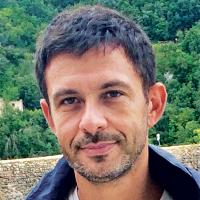
Matteo Mossio
Agency and Directionality in Development, Evolutionary Origins and Transitions of Agency, Higher-Level Agency and Directionality in Ecology and Earth Science
An organizational account of ecological functions, Intrinsic purposiveness and the shaping of development, Integration and individuation in the origin of agency, Open-ended evolution and organizational closure
Matteo Mossio is Chargé de recherche (tenured) at the Centre National de la Recherche Scientifique (CNRS), full member of the IHPST (https://ihpst.pantheonsorbonne.fr/), Paris, France. Matteo Mossio works mainly in philosophical and theoretical issues related to biological autonomy. He published several articles in international philosophical and scientific journals as well as chapters in collective volumes. In 2015, he published (together with Alvaro Moreno) a full monograph on the theory of autonomy (https://www.springer.com/gp/book/9789401798365). Matteo Mossio obtained funding for and took part in numerous research projects in France and abroad. He attended or organised over 90 national and international seminars, workshops, symposia and summer schools, and served as a reviewer for many international philosophical and scientific journals. He supervised several PhD and Master students. He regularly teaches in the Philosophy Program of the University of Paris 1 Panthéon – Sorbonne.
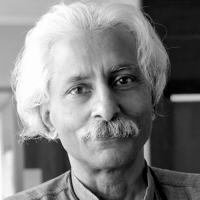
Vidyanand Nanjundiah
Agency and Directionality in Development
Cellular agency in multicellular development and cancer
Indian Institute of Science Bangalore
I studied physics and mathematics as an undergraduate (Bombay University) and took a doctoral degree in physics (University of Chicago). My research has been in developmental biology initially, and subsequently in evolutionary biology. My main interest has been the development and evolution of social behaviour in the social amoebae, with a particular emphasis on how single cell properties, especially their heterogeneities, are correlated with collective behaviour. I enjoy teaching and writing for non-specialists.
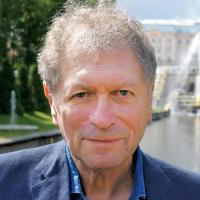
Stuart Newman
Agency and Directionality in Development
Cellular agency in multicellular development and cancer
Subaward Principal Investigator
New York Medical College
Stuart A. Newman is a professor of cell biology and anatomy at New York Medical College, Valhalla, New York. His early scientific training was in chemistry (A.B., Columbia, Ph.D., University of Chicago), but he moved into biology, both experimental and theoretical. He has contributed to several fields, including biophysical chemistry, embryonic morphogenesis, and evolutionary theory. His theoretical work includes a mechanism for patterning of the vertebrate limb skeleton based on the physics of self-organizing systems, and a physico-genetic framework for understanding the origination of animal body plans. His experimental work includes the characterization of the biophysical process of “matrix-driven translocation” of cells. Newman has also written on ethical and societal issues related to research in developmental biology and was a founding member the Council for Responsible Genetics (Cambridge, Mass.). He is an external faculty member of the Konrad Lorenz Institute, Klosterneuburg, Austria, and editor of the institute’s journal Biological Theory.
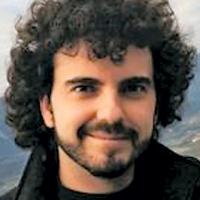
Daniel Nicholson
Agency and Directionality in Development
Cellular agency in multicellular development and cancer
George Mason University
Daniel J. Nicholson is Assistant Professor of Philosophy at George Mason University. He holds a Ph.D. in Philosophy from the University of Exeter, an M.A. in History and Philosophy of Science from the University of Leeds, and an M.Biol. in Molecular and Cellular Biology from the University of Bath. Dr. Nicholson's research is characterized by a strongly interdisciplinary engagement with the conceptual foundations of the life sciences—an engagement that combines and integrates historical, philosophical, and theoretical approaches. A central organizing theme of his research is the ontology of living systems, particularly the ways in which organisms differ from other complex organized systems like machines, and on the epistemic implications of these differences. His work can be regarded as a concerted attempt to revive an organism-centred philosophy of biology capable of overcoming the mechanicist and reductionist limitations of late twentieth-century biology.
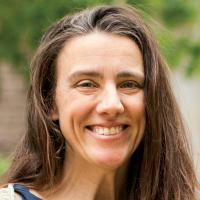
Anya Plutynski
Agency and Directionality in Development
Cluster Coordinator
Washington University in St. Louis
Professor Plutynski is a historian and philosopher of biology and medicine. Her most recent book is Explaining Cancer: Finding Order in Disorder (2018, OUP). She has also written on the history and philosophy of evolutionary biology and genetics, the role of modeling in science, and scientific explanation. Other research interests include biomedical research ethics, particularly issues surrounding precision oncology, cancer genomics, and risk communication.

Sahotra Sarkar
Agency and Directionality in Development
Cellular agency in multicellular development and cancer
University of Texas at Austin
Sahotra Sarkar is Professor of Philosophy and of Integrative Biology at the University of Texas at Austin.
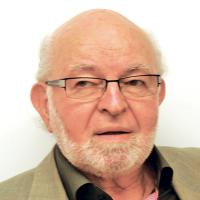
Carlos Sonnenschein
Agency and Directionality in Development
Intrinsic purposiveness and the shaping of development
Tufts University
CARLOS SONNENSCHEIN is a Professor at Tufts University School of Medicine, and an International Fellow at the Centre Cavaillès, Ecole Normale Supérieure, Paris, France. He was a Fellow at the Institute of Advanced Studies-at-Nantes, France. For over five decades, Dr. Sonnenschein’s research has centered on a) the control of cell proliferation by estrogens and androgens, b) the impact of endocrine disruptors on organogenesis and the reproductive function and c) carcinogenesis during early development and adult life and, specifically, on the role of stroma/epithelial interactions on rat and breast carcinogenesis. In 1999, Drs Sonnenschein and Dr. Ana M Soto co-authored a book entitled THE SOCIETY OF CELLS (Bios-Springer-Verlag) in which they critically evaluated the fields of control of cell proliferation and carcinogenesis. They concluded that a) the default state of all cells is proliferation, and that b) sporadic cancers (over 95% of clinical cases) are anchored at the tissue level of biological organization. These are the core premises of their theory of carcinogenesis and metastases, i.e., the tissue organization field theory (TOFT).
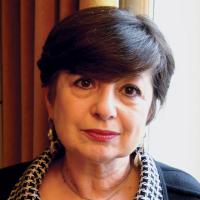
Ana Soto
Agency and Directionality in Development
Intrinsic purposiveness and the shaping of development
Subaward Principal Investigator
Tufts University
ANA M. SOTO, M.D. (Professor, Tufts University School of Medicine, Boston, Foreign Correspondent Member Centre Cavaillès, Ecole Normale Supérieure, Paris and Fellow, Collegium Ramazzini, Carpi) is a theoretical and experimental biologist. Her research interests include the control of cell proliferation, normal and neoplastic development, and biological autonomy and organization. In partnership with Professor Carlos Sonnenschein, they posited that the default state of cells in all organisms is proliferation and proposed the Tissue Organization Field Theory of Carcinogenesis, in which cancer is viewed as development gone awry. As the Blaise Pascal Chair at the ENS (2013-5) she coordinated a multidisciplinary working group devoted to the elaboration of a theory of organisms. She is a recipient of several honors including the 2012 Gabbay Biotechnology & Medicine Award, Brandeis University and the Grand Vermeil Medal, the highest distinction from the City of Paris for her pioneering role in the discovery of endocrine disruptors.
